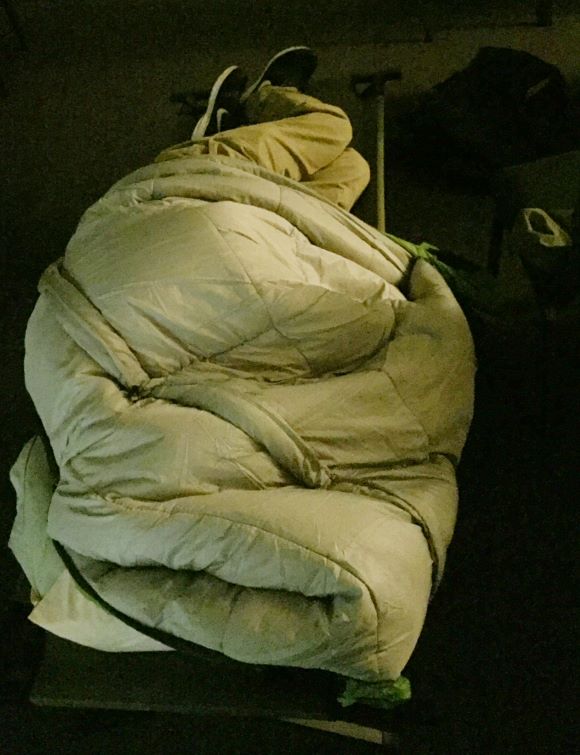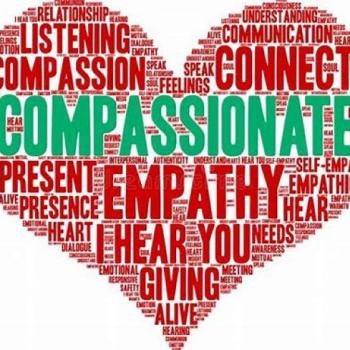“Sorry, I can’t help. You’re homeless.” (2 of 3)
Disenfranchisement
Today, there are close to 650,000 Americans on the street on any given day. That’s the population of Boston, MA, Portland, OR, or Washington, D.C.! and almost 2% of the American population. In many cities and counties across the U.S., it is basically seen as “illegal” to be homeless. People without brick-and-mortar homes are disenfranchised from services that allow them full citizenship. How? You need to have an address to have a cellphone plan. Billing must have an address to where they can run a credit check and send bills. To get most job interviews, the prospective employee must have an address. No address, no interview. To get most bank accounts, you need to have an address. Many are thinking, “Simple! Use a shelter address!” No. Most employers, banks, and cellphone companies have these addresses on file, and the person is automatically “red-flagged” as someone who can’t be trusted.
A Little Story—Number One
I used to work for a chain department store in the shoe department to make ends meet when I was starting my singing career. One of my fellow “Shoe Dogs” was a well-spoken man of 40 who wore the same three well-worn and loved jackets to work every day. Jim (not his real name) was always courteous with the customers and a true gentleman to everyone he met, staff included.
But we all noticed a bit of melancholy in Jim, particularly around closing time. He would laugh it off by saying, “Aww… I have a big night of laundry (or cleaning or cooking) ahead of me.” That’s all. Over time, I got to know Jim very well. He was quite a philosopher and internally religious. He had been divorced in a very ugly breakup when his wife of 20 years left him for another man.
One weekend evening, some friends and I went to a local lake to watch the sunset, play a few games, and cook out on the grill at one of the shelters. At some point, I looked over and saw the car. It was Jim’s car! I strolled over, expecting to see Jim somewhere in the vicinity. Instead, I looked in and saw. Jim, fast asleep in the back. His three work jackets were on hangers just over his feet, and his slacks were neatly on hangers next to them. On the front seat was a small bag with a tube of toothpaste and a toothbrush peeking out. On the front seat floor was a bunch of paperwork and a few library books with bookmarks in them. I suddenly felt like an intruder into someone’s life, into their bedroom, into their home. And, truth be told, I was!
The next day at work, I said that a few friends and I had been out at the lake and might have seen his car. He didn’t avoid the subject or even try to hide the reality of the situation. Instead, he took a deep breath and said, “Well, divorce from someone you love can be hell.”
Jim told me that when his wife left him, he didn’t hire a lawyer or try to fight her in any way. She didn’t want him anymore, and he didn’t care what had happened to him. She took everything. The house, the car, the bank account… everything. She left him his clothes and $5,000. That’s it. He spent the first week in a hotel room and realized he was in deep trouble. He was spending way too much, way too fast. He bought an old secondhand Toyota and got a gym membership. He had his job at the store, and the manager agreed to give him as many hours as possible, but that was only 35 hours. He couldn’t put him on full-time with benefits.
For the past three years, Jim had been waking with the sun, then driving the three miles to the health club, where he would stretch out on a bench in the locker room after a poor night’s sleep, then wash what clothes he could in the sink while taking a shower. Then, he’d get dressed for work and go in. At night, he’d get back in his car and drive to one of the local lakes to spend the night in his car. On his days off, he’d hang around the health club or go to the library, then to a cut-rate day-old store to scavenge for the cheapest food possible.
A few years after I left the store, I asked a friend whatever happened to Jim. They told me that Jim finally got enough money together to take a few night classes at a local community college and was now working as a concierge for a hotel chain. The hotel gave him a place to stay and a paycheck. Jim was one of the lucky ones.
Mental Conditions
It is estimated that up to one-third of the homeless have a long-term mental condition. This could be anything from untreated schizophrenia to bipolar. Due to governmental cutbacks starting in the 1960s, the homeless population across the U.S. began to rise to the point it is today, with approximately 6% of the homeless being veterans—in whom Post Traumatic Stress Disorder (PTSD) runs rampant. Speaking of PTSD, over 86% of people living on the street will contract some form of PTSD within two months brought on by living conditions, vulnerability to theft, assault, rape, and deprivation of basic human rights.
No Community or Family
About 34% to 37% of the homeless population are families. Moms, Dads, and children living in a car or in shelters—with approximately 1,6 million children experiencing homelessness in their young lives. Why? They feel they have nowhere else to go and no one to assist them. In many cases, they have outlived their family. Nearly 1 in 5 of the homeless population are over 55 and have no family. These aren’t “drug-addled” individuals. They’re just older people who are alone and have no one to turn to. Another heartbreaking segment of the homeless population is the unwanted. Unwanted teens, unwanted uncles, aunts, parents, and grandparents. These are people, for whatever reason, not able to get along, sexual orientation, idealism, etc., are either kicked out of the house or left behind to fend for themselves. These people not only don’t have anything but are emotionally and morally demoralized.
A Little Story Number Two
At the parish overnight shelter in The San Francisco Bay Area, I would typically be the “overnight man,” meaning I would spend the night awake, watching over the men to ensure they were safe and their needs were being met. The doors to the hall would be locked from the outside, and I would tell them, “I am here to keep you safe, to watch over you, to be your Guardian Angel while you sleep—not your guard. The doors are open from the inside, and you can get out anytime you like. But you will not be able to get back in. It’s the only way we can be sure you’re safe throughout the night.” With that, I’d turn a TV on in the corner, and the men would find a space that they would delineate by putting chairs around the spot they’d chosen. Every night, there would be a few men who would have a tough time sleeping or would wake from a nightmare. Then, they would sit with me the rest of the night, and we’d chat.

One man comes to mind. Curly (not his real name) was a 52-year-old man who looked 70 because he was living on the street. He had been a Merchant Marine who had sailed the South Pacific to the U.S. route more times than he could count. He had been married to a beautiful woman from Japan who was a classical violinist and was a player in several local companies. They had no children or family, and Curly deeply and dearly loved his wife. He admitted it was rough separating every time he had to put back out to sea.
After a rather lengthy voyage, he returned home to find his key didn’t work in their apartment door lock anymore. When he knocked on the door, he discovered that someone else was living there. After speaking with the building super, he found out that his wife had died in an accident two days after he’d left, and no one knew where Curly was or how to get a hold of him. All of the belongings in the apartment were either auctioned off or thrown away per the rental agreement. Curly went into a tailspin. His apartment, gone. The love of his life, gone. His reason to live, gone.
He started to drink and stayed drunk for the better part of a year and a half until he ran out of money. He had no real friends to speak of and lost any possibility of getting his job back. He had been picked up and put in jail for vagrancy and for peeing in public and had a record with outstanding warrants because he didn’t have the money to pay the fine.
When I met Curly, he’d been visiting the parish for over six years. He obviously had mental health issues; anytime you asked him a question, he would go into his own zone for a good 30 seconds before answering. His teeth had mostly rotted away, and he was constantly clutching his stomach because of some pain. At this point in his life, he was homeless not by choice but by circumstances.
Last week, I was informed by a friend at the parish that Curly passed away at a local hospital of cancer no one knew he had. He hadn’t seen a doctor in years.
So, What Do We Do?
These are only two stories out of almost a million in the U.S. alone. Every day, there are more and more homeless, just like Jim and Curly. And the homeless population isn’t just in the warm parts of the country or in large cities. No. You will find them in small towns in the mid-west, in rural areas in the north, and in desert stretches in the southwest. I’m willing to bet you pass them on your way to work at the grocery store or on your way to church… but do you ever really notice them? Look at them? See them? So, the question is, what could you do to help anyone of these? What is the least you could do to show compassion, understanding, and hope to one like these? Are you your brother’s (or sister’s) keeper?
“…I needed clothes, and you clothed me. I was sick, and you looked after me; I was in prison, and you came to visit me.” Matthew 25: 36
3 of 3 “Sorry, I can’t help. You’re homeless” next week.













